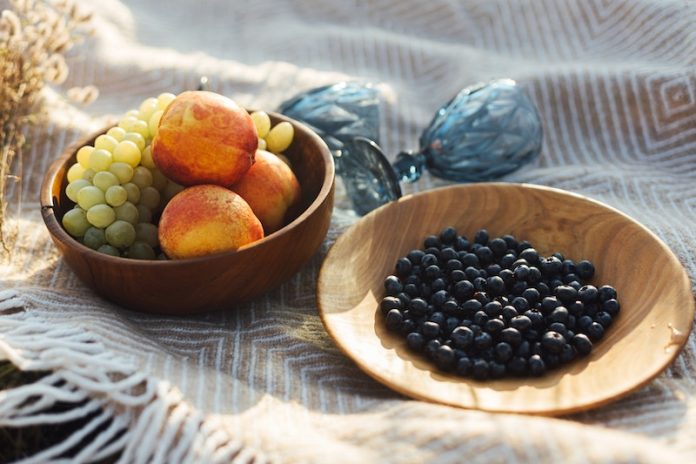
Everyone aspires to have that youthful, glowing, clear skin that radiates health and confidence. Beyond creams and beauty treatments, what we put inside our bodies plays a crucial role in our skin’s health.
This review delves into foods backed by research that promote clear skin and explains their benefits in straightforward terms.
The Skin-Food Connection
The skin, our body’s largest organ, often reflects our internal health. If we’re nourishing our bodies with the right foods, it’s likely to show up on our skin.
On the contrary, if we consistently consume foods that are not beneficial, it might manifest as acne, dullness, and premature aging.
While genetics and other external factors play a role, our dietary choices have a powerful impact on our skin’s clarity and overall health.
Foods that Nourish the Skin
Let’s dive into the specific foods that have been shown to support skin health:
A) Fatty Fish (like salmon and mackerel):
Rich in omega-3 fatty acids, these fish help keep the skin moisturized and reduce inflammation which can cause redness and acne. A study published in the Journal of Lipid Research found that individuals who consumed more fish showed fewer signs of skin aging.
B) Avocados:
Packed with beneficial fats and vitamin E, both are vital for skin health. According to a study in the American Journal of Clinical Nutrition, avocados are also high in vitamin C, essential for creating collagen, the protein that keeps our skin firm.
C) Walnuts:
An excellent source of essential fatty acids, which the body can’t make itself. Walnuts also provide zinc, crucial for skin inflammation control, and overall skin health.
D) Sunflower seeds:
In general, nuts and seeds are good for the skin. Sunflower seeds are a great source of linoleic acid and vitamin E, both beneficial for skin health.
E) Sweet Potatoes:
Loaded with beta-carotene, which acts as a natural sunblock and may protect the skin from sun damage, as indicated in the Journal of Evolution and Health.
F) Bell Peppers:
Another excellent source of beta-carotene and also rich in vitamin C. Vitamin C is necessary for creating collagen, ensuring that the skin remains plump and youthful.
G) Tomatoes:
Rich in vitamin C and packed with all the major carotenoids including lycopene. According to studies in the British Journal of Dermatology, these have been shown to protect the skin against sun damage.
H) Green Tea:
Contains powerful antioxidants called catechins which can protect and improve the skin’s health. A study in the Journal of Nutrition showed that regular consumption of green tea might reduce redness from sun exposure.
Foods to Approach with Caution
While many foods promote skin health, some might contribute to breakouts or other skin problems:
A) Dairy:
Some studies, such as those in the Journal of the Academy of Dermatology, suggest a link between dairy consumption and acne. The relationship isn’t fully understood, but it might be due to hormones present in milk.
B) Foods rich in refined sugars:
High-glycemic-index foods can increase insulin levels, potentially leading to acne. A study in the Journal of the American Academy of Dermatology found a link between high sugar intake and increased risk of acne.
C) Fast foods:
Consuming a lot of processed or fried foods may contribute to aging skin.
In summary, while many factors influence our skin’s health, dietary choices play a crucial role. Consuming foods rich in essential vitamins, antioxidants, and fatty acids can pave the way for radiant, clear skin.
On the flip side, moderating the intake of potential skin-aggravating foods might help in achieving that desired skin glow.
Follow us on Twitter for more articles about this topic.
Copyright © 2023 Scientific Diet. All rights reserved.








